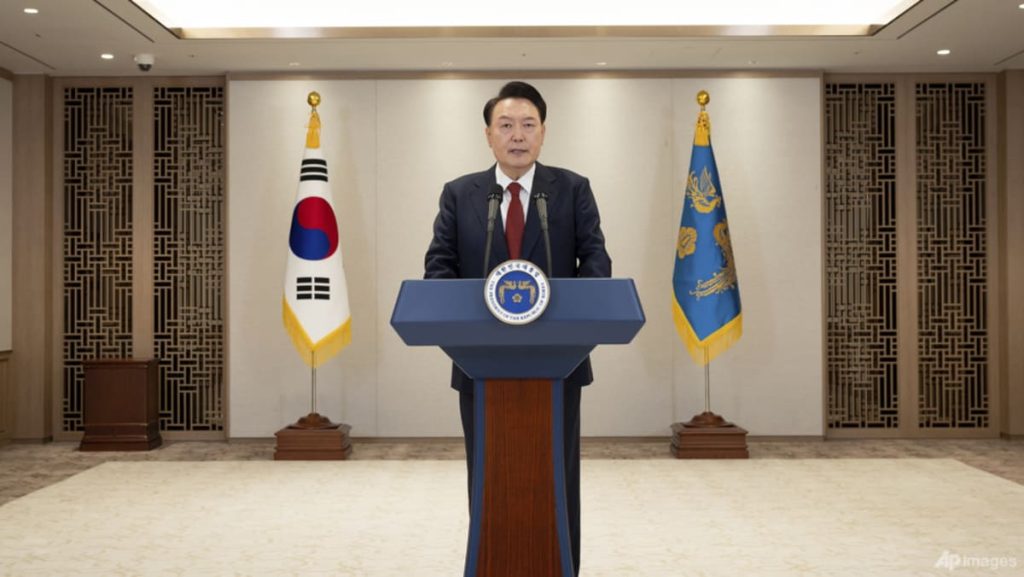The political landscape of South Korea is currently embroiled in a high-stakes legal and constitutional drama centered around impeached President Park Geun-hye. Facing potential life imprisonment or even the death penalty, Yoon Suk-yeol, a key figure in the investigations surrounding Park, has become a central character in this unfolding narrative. The Constitutional Investigation Office (CIO), tasked with probing the allegations against Park, has encountered resistance in its attempts to summon Yoon for questioning, raising questions about his cooperation and the potential ramifications for the broader investigation. This resistance, coupled with the ongoing impeachment proceedings against Park in the Constitutional Court, has created a complex interplay of legal processes with far-reaching consequences for South Korea’s political future.
The CIO’s efforts to secure Yoon’s testimony have been met with an unexpected roadblock. An initial summons sent to Yoon was returned undelivered, with reports indicating that an individual at the presidential office refused to accept the document. This refusal to accept the summons represents a significant development, raising concerns about potential obstruction of justice and a lack of cooperation with the ongoing investigation. The CIO has publicly stated that Yoon’s failure to appear before investigators will be considered a direct defiance of the summons, further escalating the tension surrounding his involvement. The CIO is now weighing its options, which include issuing a second summons or, more drastically, seeking an arrest warrant. The decision to pursue an arrest warrant would undoubtedly mark a significant escalation in the investigation and could have profound implications for the political climate.
Adding further complexity to the situation, Yoon is currently under investigation by multiple entities, including South Korean prosecutors, a joint team comprising police, defense ministry representatives, and anti-corruption investigators. The scope of these investigations highlights the seriousness of the allegations against Yoon and the potential for widespread implications. The charges he faces, along with those levelled against members of Park’s inner circle, carry severe penalties, including life imprisonment and even the death penalty. These potential consequences underscore the gravity of the situation and the immense pressure facing all involved. Furthermore, Yoon is currently subject to an international travel ban, restricting his movement and adding another layer of constraint to his circumstances.
Parallel to the CIO’s investigation, the Constitutional Court is conducting its own proceedings to determine the validity of Park’s impeachment. These proceedings, which commenced on Monday, represent a separate but interconnected legal process that will ultimately decide Park’s fate as president. The court has ordered Park to submit the martial law decree she issued two weeks prior, along with records of cabinet meetings held immediately before and after the announcement. This request for documentation suggests that the court is scrutinizing the circumstances surrounding the decree and its potential implications for the impeachment proceedings. The court has approximately six months to reach a decision, with a preliminary hearing scheduled for December 27th. While Park’s attendance at this hearing is not mandatory, the proceedings will undoubtedly be closely watched by the nation.
The convergence of these two legal processes – the CIO’s investigation into Yoon and the Constitutional Court’s deliberation on Park’s impeachment – creates a complex web of legal and political maneuvering. The outcome of each process has the potential to significantly impact the other, creating a dynamic and unpredictable situation. Yoon’s refusal to cooperate with the CIO’s investigation could influence the court’s perception of the broader allegations against Park and her administration. Conversely, the court’s decision on Park’s impeachment could have implications for the charges against Yoon and the trajectory of the CIO’s investigation.
The unfolding events surrounding Park’s impeachment and the investigations into Yoon and others represent a critical juncture in South Korea’s political history. The outcome of these legal processes will not only determine the fate of individuals involved but also shape the future direction of the country. The potential for significant political upheaval underscores the importance of these proceedings and the need for a thorough and transparent legal process. The international community will undoubtedly be watching closely as these events unfold, recognizing the potential ramifications for regional stability and the broader geopolitical landscape. The coming months will be crucial in determining the course of South Korean politics and the long-term impact of this tumultuous period.

